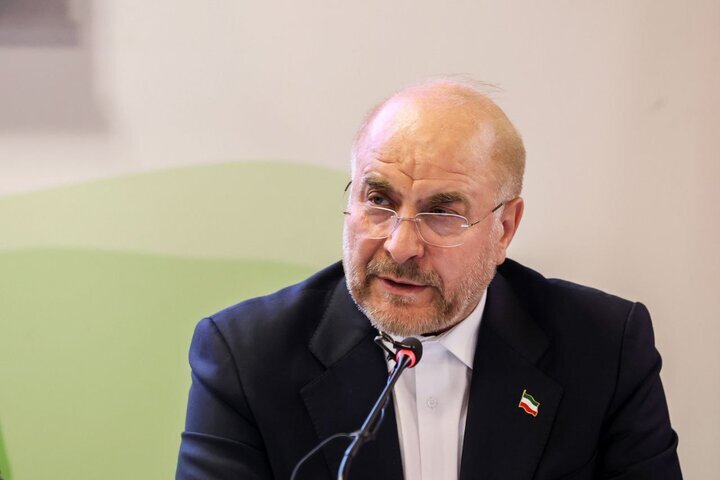Ghalibaf hails Iran, China, Russia union against snapback

TEHRAN, Oct. 26 (MNA) – Iranian Parliament Speaker says the joint stance of Iran, Russia, and China underscores a unified rejection of Western pressure and marks a turning point in affirming Iran’s nuclear rights.
In one of the most significant recent developments in foreign policy, Iran, along with Russia and China, sent an official letter to the UN Secretary-General and the President of the Security Council, declaring the European trio’s attempt to trigger the snapback mechanism legally invalid, Iranian Parliament Speaker Mohammad Bagher Ghalibaf said in Parliament's open session on Sunday.
This move symbolizes the strategic solidarity of three major powers in the face of Western pressure and, in accordance with Paragraph 8 of Resolution 2231, reaffirms the termination of previous restrictions and the continuation of the repeal of all prior resolutions, Ghalibaf said.
Thus, with the recognition of Iran’s right to enrich uranium, Iran's nuclear case has been officially removed from the UN Security Council’s security agenda, he noted.
In a Saturday letter to UN Secretary General Antonio Guterres, Iranian, Russian and Chinese representatives at the UN said Europe’s decision to trigger the snapback lacked any legal foundation.
“Efforts by the three European countries to invoke the so-called ‘snapback’ mechanism are legally defective and lack any legal basis,” read the letter addressed to Guterres as well as Vassily Nebenzia, whose country holds the rotating presidency of the UN Security Council. “The three European countries, which themselves have reneged on their commitments under [UNSC] Resolution 2231 and refused to comply with the trend set in the ‘dispute settlement mechanism’ are not competent to refer to its provisions,” the letter added.
“Under operative clause 8 of Resolution 2231, all of its provisions were terminated after October 18, 2025. Once again, we reiterate that the full and prompt termination of Resolution 2231 amounts to the end of reviewing Iran’s nuclear issue at the UN Security Council, something which would reinforce the power of the council and the credibility of multilateral diplomacy,” the letter added.





